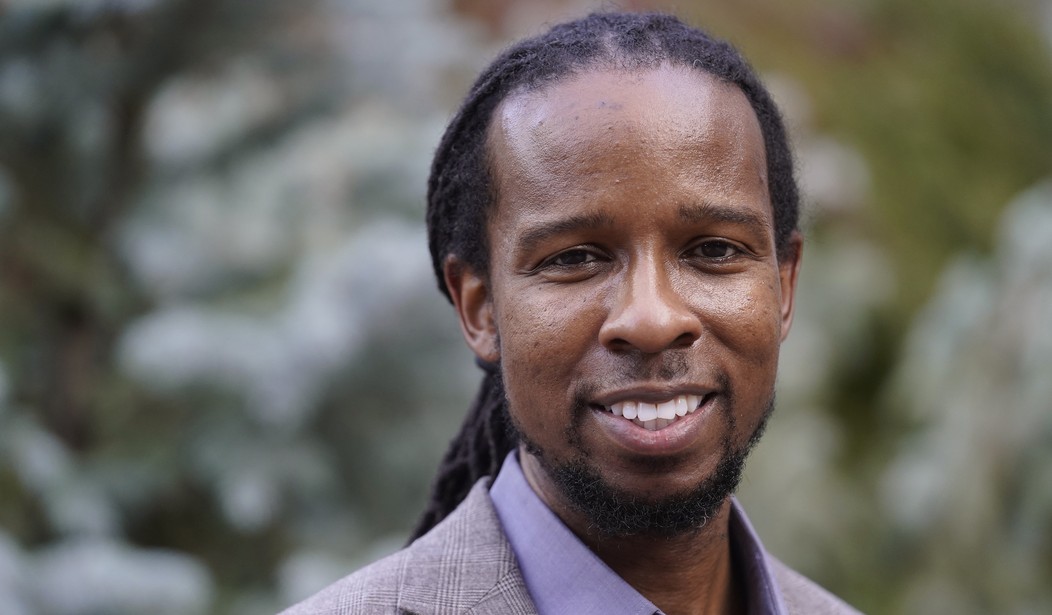It turns out that putting Robin DiAngelo and Ibram X. Kendi in charge of the nation's collective HR programs hasn't gone smoothly in all cases. Who would have guessed?
Today the Washington Post has a story about the legal backlash that ubiquitous anti-racism training has created. There are at least 59 current lawsuits brought against these training programs by people who say they felt discriminated against.
Joshua Young, a corrections officer in the Colorado prison system, was shocked by the lessons of the anti-bias training session he was required to attend in March 2021. With its references of “White supremacy,” “White exceptionalism” and “White fragility,” the training sent a clear and disturbing message to his mind: All White people are racist.
“I thought the training was potentially harmful to our staff relationships, relationships between staff and offenders, and undermined us in so many ways,” Young, 47, said in an interview. “It told us basically that … we were unable to treat people fairly just because of the way they look.”
Young eventually filed a lawsuit which was eventually dismissed by the 10th Circuit Court of Appeals on the grounds that it wasn't "severe and pervasive." However, the the court also found the "race-based rhetoric" used in the training was well on its way to becoming harassment. Young has since refiled his case arguing that the training had a lasting impact in his workplace.
The real source of this legal backlash is the shift from anti-bias training, which companies have used for decades and anti-racism which has dominated corporate training since 2020. A group that tracks the kind of training used at 460 major companies said that prior to 2020, anti-racism was used so infrequently they didn't bother to track it. But since 2020, 98% of the companies they track have brought in anti-racism trainers. In other words, Ibram X. Kendi and Robin DiAngelo (author of White Fragility) are effectively running the HR department of most major companies now.
The real kicker in this story comes about halfway through. As we've discussed here before several times, there is no evidence that any of this training works.
[Harvard sociologist Frank] Dobbin’s research found that unconscious bias training has been largely ineffective in diversifying workforces, even as it remains central to corporate diversity efforts. The problem, he argues, is that it often shames people and puts undue attention on past incidents that led to discrimination, which some workers might find intimidating. The approaches can repel employees and be counterproductive, he said.
A similar dynamic applies to the newer “anti-racism” training, he said, adding that trying to convince people they harbor racial biases and need to change is a losing battle. “We know that people just don’t respond very positively to that message, even if its message is 100 percent correct,” he said in an interview.
Of course, DEI trainers who do this for a living disagree. They believe the training works, but then what else would you say if your livelihood depended on it. Not all of the cases brought against anti-racist training have succeeded. One case brought against Honeywell was dismissed, but others are proceeding:
Legal experts point to a recent ruling involving Penn State Abington, a Penn State satellite campus just north of Philadelphia.
The case was filed by English professor Zack De Piero, who claims he was discriminated against for being White. In August 2020, De Piero says he was required to watch a presentation captioned “White teachers are the problem.” During a breathing exercise the same year, De Piero claims White and other non-Black faculty were told to hold their breath longer than Black faculty members so they could “feel the pain.”
Looking back at this case, the anti-racism training was really just one small part of the problem at Penn State:
DePiero alleges, “Following the tragic murder of George Floyd in May 2020, the defendants’ ‘antiracist’ activism reached a new fever pitch.” His lawsuit cites emails from later that year, where defendants allegedly wrote that white employees should “Stop talking” and directed writing faculty members to “assure that all students see that white supremacy manifests itself in language and in writing pedagogy.”
“Naydan instructed her writing faculty to teach that white supremacy exists in language itself, and therefore, that the English language itself is ‘racist’ and, furthermore, that white supremacy exists in the teaching of writing of English, and therefore writing teachers are themselves racist white supremacists,” the suit says. She also allegedly “endorsed a Penn State colleague’s view that ‘reverse racism isn’t racism.’”...
In September [of 2021], DePiero filed a bias report with the university’s Affirmative Action Office, his lawsuit says.
Carmen Borges, the associate director of that office, allegedly then told him, “There is a problem with the white race.”
In January of this year a federal judge ruled De Piero’s case could proceed and said the trainings in question "discussed racial issues in essentialist and deterministic terms — ascribing negative traits to white people or white teachers without exception and as flowing inevitably from their race." In short, the trainings were racist against white people.
The Post's story ends, not surprisingly, with Robin DiAngelo, who is still giving her brand of anti-racism training. She says she hasn't changed anything about what she does and adds, "There will be no growth if I don’t have some discomfort."
DiAngelo will never learn. She's an anti-capitalist who will keep pushing this so long as corporations are dumb enough to pay her tens of thousands of dollars to do so. The only way this stops is that enough lawsuits are brought that corporations think twice about paying to have this racist poison forced on their employees.








Join the conversation as a VIP Member